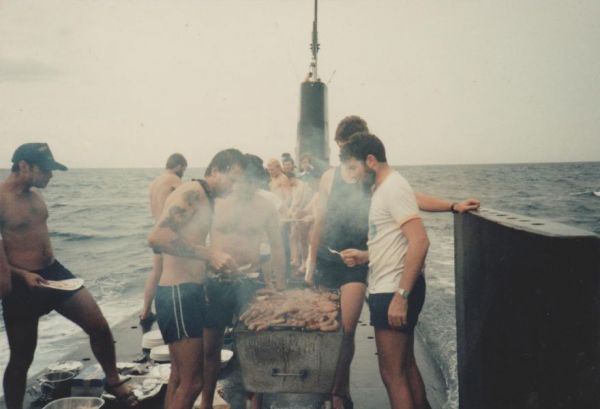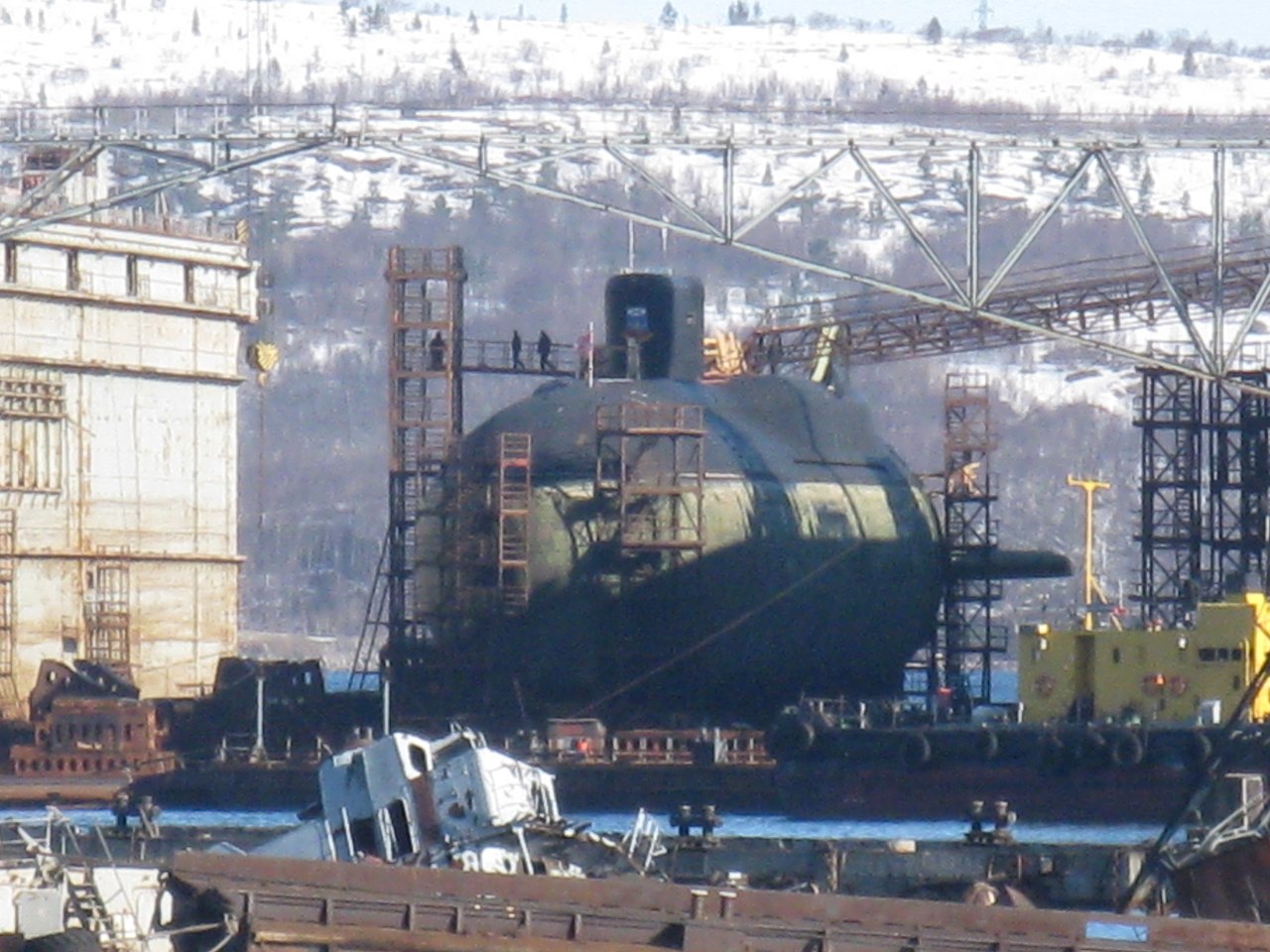Eli Saabin tavoiteena on ahdistaa nykyinen saksalainen omistaja nurkkaan ja pakottaa myymään Ruotsissa olevat toiminnot alehintaan. Kyynisenä voisin melkein arvailla että Ruotsin Venäjän pelossa tekemät puolustusbudjetin nostot valuvatkin sitten lähivuosina Saabin taskuun.
Install the app
How to install the app on iOS
Follow along with the video below to see how to install our site as a web app on your home screen.
Note: This feature may not be available in some browsers.
You are using an out of date browser. It may not display this or other websites correctly.
You should upgrade or use an alternative browser.
You should upgrade or use an alternative browser.
Sukellusveneet
- Viestiketjun aloittaja Nojatuolistrategi
- Aloitus PVM
fulcrum
Greatest Leader
No sitähän minä juuri sanoin. Telakan pitää saada myytyä aluksiaan, jos emoyhtiö kieltää osallistumasta tai muuten sabotoi myyntimahdollisuuksia, niin aika paha siinä on saada veneitä kaupaksi. Kulisseissa onkin arvailtu että Thyssenin tarkoitus alun alkaenkin oli vain ostaa kilpailija pois markkinoita sotkemasta. Ihan näin kyyniseen vetoon en usko, mutta näyttää aika selvältä ettei lafka salli sisäistä kilpailua vaan kotimaiset telakat ovat etusijalla ja ruotsalaisille jää ne mitä jää, ja jos ne ei riitä niin lappu luukulle vaan, jäähän heille Saksan telakat.
Nojatuolistrategi
Ylipäällikkö
Vuoroin vieraissa.
http://www.saabgroup.com/en/About-S...Saab-acquires-ThyssenKrupp-Marine-Systems-AB/
Saab alkaa suunnitella samalla uutta torpedoa Ruotsin laivastolle.
http://www.saabgroup.com/en/About-S...Saab-acquires-ThyssenKrupp-Marine-Systems-AB/
Saab alkaa suunnitella samalla uutta torpedoa Ruotsin laivastolle.
Kirjoittelinkin tuonne merivoimien kehitysnäkymät ketjuun tämän linkin eli japanista saisi ihan Kiloa kookkaampaa modernia dieselsukellusvenettä hintaan 500milj USD(380milj EUR). Linkki: http://thediplomat.com/2014/09/japan-enters-global-submarine-market-with-soryu-offering/
20 miljardia aussi taalaa (14.3 miljardia euroa) 10stä jaappanilaisesta sukellusveneestä kaikilla herkuilla on aika helvetin paljon sukellusvene laivastosta.
http://www.news.com.au/national/new...nment-20-billion/story-fncynjr2-1227050682205SEVENTY-TWO years after Japanese submarines attacked Sydney Harbour, the next generation of Australian submariners will be put to sea in boats made in Japan.
In one of the biggest and most contentious defence equipment decisions in decades, the Abbott Government will select the Japanese-built Soryu Class submarine to replace locally built Collins Class boats as the navy’s key strike weapon beyond 2030.
20 miljardia aussi taalaa (14.3 miljardia euroa) 10stä jaappanilaisesta sukellusveneestä kaikilla herkuilla on aika helvetin paljon sukellusvene laivastosta.
http://www.news.com.au/national/new...nment-20-billion/story-fncynjr2-1227050682205
Parasta mitä rahalla saa, ellei ydinsukellusveneeseen riitä rahaa tai poliittista tahtoa. Australian merivoimien kannalta ongelmallisia ovat paikalliset erityisolosuhteet: sukellusveneet olisi tarkoitus tehdä Japanissa telakalla mikä on tehnyt sukellusveneitä suurimittaisesti vuosikymmenien ajan, jolloin tuotantokustannuksetkin ovat edullisia. Lisäksi kyseessä olisi Japanin läpimurto asemarkkinoille. Mutta kun kyseessä ei ole australialainen telakka...

Jotkut sanovat että sukellusveneillä on paremmat sapuskat kuin muilla. En vain olisi uskonut että heillä on mukana myös grilli ja kilokaupalla makkaroita.
Mikä paatti ja miltä vuodelta?
Mikä paatti ja miltä vuodelta?
Ei aavistustakaan. Mutta voin arvata että jenkkien hyökkäysvene joskus 80 taikka 90 luvun taitteesta, kun ihmettelee kuvissa olevia vihjeitä kuten casion digitaalikelloa, valkopaitasella ranteessa, ja lautasenpitäjällä on jenkkien tyypillinen lippis.
pstsika
Haukka
@peelo @ctg
Grilling on Top of a Moving Submarine
John Farrier • Monday, January 12, 2015 at 4:00 AM • 1

Redditor shanbuscus offers this photo of his dad on top of HMAS Onslow, a diesel submarine operated by Australia's navy from 1968 to 1999. It's now on display and open to visitors at the Australian National Maritime Museum in Sydney.
In the comments, other redditors who were submariners describe at great length what submarine air smells like after a lengthy cruise.
http://www.neatorama.com/neatopicto/2015/01/12/Grilling-on-Top-of-a-Moving-Submarine/
http://www.reddit.com/r/pics/comments/2r8opn/i_found_a_photo_of_my_dad_cooking_a_barbecue_on/
Ja itse veneestä:
http://en.wikipedia.org/wiki/HMAS_Onslow
Grilling on Top of a Moving Submarine
John Farrier • Monday, January 12, 2015 at 4:00 AM • 1

Redditor shanbuscus offers this photo of his dad on top of HMAS Onslow, a diesel submarine operated by Australia's navy from 1968 to 1999. It's now on display and open to visitors at the Australian National Maritime Museum in Sydney.
In the comments, other redditors who were submariners describe at great length what submarine air smells like after a lengthy cruise.
http://www.neatorama.com/neatopicto/2015/01/12/Grilling-on-Top-of-a-Moving-Submarine/
http://www.reddit.com/r/pics/comments/2r8opn/i_found_a_photo_of_my_dad_cooking_a_barbecue_on/
Ja itse veneestä:
http://en.wikipedia.org/wiki/HMAS_Onslow

Hakkapeliitta.

Employees and journalists gather around the Indian Navy's first indigenously-built Scorpene attack submarine at Mazagon Dock in Mumbai, India, Monday, April 6, 2015. Indian Defense Minister Manohar Parrikar and Maharashtra State Chief Minister Devendra Fadnavis Monday undocked the submarine from the dock, a naval vessel ship-building yard. (AP Photo/Rafiq Maqbool)
http://www.militaryphotos.net/forum...il-11th-2015&p=7619026&viewfull=1#post7619026

Miksi kaveri on antamassa lähisuojaa tornissa kun ollaan omassa satamassa?

http://www.militaryphotos.net/forum...First-Post!)&p=7612682&viewfull=1#post7612682
Koska kuuluu toimintaohjeisiin. Olis aika noloa, jos ensimmäinen torniin kiipeävä olisikin varastetulla IDF:n asepuvulla liikenteessä oleva terroristi ja tipauttaisi räjähteen luukusta sisään. Jalkaväkiasein suoritettu turvallisuusvartiointi kuuluu aika monen laivaston perusjuttuihin.
OldSkool
Kapteeni
Besserwisser-asenteella ja jälkiviisauden järkähtämättömällä tyyneydellä kuittaan tähän että juuri noin, tietenkään kyseessä ei voinut olla USAlainen sukellusvene. No miksikö? No tarpeeksi monta leffaa nähneenä, jenkit olisivat grillanneet jauhelihapihvejä purilaisiin. Ja yksi kannella olisi ollut pukeutunut kokin tamineisiin. (hymiöitä perään)@peelo @ctg
Grilling on Top of a Moving Submarine
John Farrier • Monday, January 12, 2015 at 4:00 AM • 1

Redditor shanbuscus offers this photo of his dad on top of HMAS Onslow, a diesel submarine operated by Australia's navy from 1968 to 1999. It's now on display and open to visitors at the Australian National Maritime Museum in Sydney.
In the comments, other redditors who were submariners describe at great length what submarine air smells like after a lengthy cruise.
http://www.neatorama.com/neatopicto/2015/01/12/Grilling-on-Top-of-a-Moving-Submarine/
http://www.reddit.com/r/pics/comments/2r8opn/i_found_a_photo_of_my_dad_cooking_a_barbecue_on/
Ja itse veneestä:
http://en.wikipedia.org/wiki/HMAS_Onslow
Aikamoinen valas tuo Borai luokka on.

http://www.militaryphotos.net/forum...gular-basis)&p=7624249&viewfull=1#post7624249

http://www.militaryphotos.net/forum...gular-basis)&p=7624249&viewfull=1#post7624249

http://defensetech.org/2015/04/15/usgs-proteus-mini-submarine/#more-24796Huntington Ingalls’ Undersea Solutions Group showed off its Proteus mini submarine at the Navy League’s 2015 Sea-Air-Space Exposition. The potent-looking vessel can serve as a unmanned underwater vehicle or a manned swimmer-delivery system. The battery-powered Proteus can carry six combat swimmers 350 to 700 nautical miles, depending on the type of battery used, according to USG officials.
Ei mene hyvin Brittien suve laivastolla. Alkuperäinen raportti alalaidassa.
http://veteransforpeace.org.uk/2015/submariner-blows-the-whistle-on-trident/
http://www.theguardian.com/uk-news/...blower-on-run-alleged-trident-safety-failingsThe police and Royal Navy are hunting for a whistleblower who is on the run after publishing a dossier of alleged security failings on board Trident nuclear submarines.
Able Seaman William McNeilly, 25, a newly qualified engineer, claimed that Britain’s nuclear deterrent was a “disaster waiting to happen” in a report detailing 30 alleged safety and security breaches.
He wrote that a chronic manpower shortage meant that “it’s just a matter of time before we’re infiltrated by a psychopath or a terrorist; with this amount of people getting pushed through”.
The Ministry of Defence has launched an investigation into the claims, published in a 19-page report titled The Secret Nuclear Threat, which it said contained a “number of subjective and unsubstantiated personal views ... with which the Naval Service completely disagrees”.
McNeilly, from Newtownabbey, near Belfast, was due to report back for work at the weekend in Faslane sumbarine base on the Clyde but has since been reported missing. Royal Navy chiefs and civilian police are searching for the seaman.
In the report, published online alongside a picture of his UK passport and Royal Navy identity card, McNeilly said he wanted “to break down the false images of a perfect system that most people envisage exists”.
He described bags going unchecked and that it was “harder getting into most nightclubs” than into control rooms, with broken pin code systems and guards failing to check passes. “All it takes is someone to bring a bomb on board to commit the worst terrorist attack the UK and the world has ever seen,” he wrote.
The 25-year-old said he raised these and other concerns through the chain of command on multiple occasions, but that “not once did someone even attempt to make a change”.
The whistleblower also revealed that there had allegedly been a fire in the missile compartment when the vessel was in harbour. He claimed the blaze was sparked by overheated cables setting light to stacks of toilet roll. “The chief said if it had been at sea there would’ve been about 50 dead bodies on three deck because of the amount of people struggling to find an emergency breathing system,” he claimed.
Angus Robertson, the Scottish National party leader in Westminster, described the claims as extremely concerning and said the allegations add weight to calls to scrap Trident altogether.
He said: “It reads as a nightmare catalogue of serious safety breaches aboard and alongside these nuclear-armed submarines ... Shortages of all types of crew on these submarines has been well-documented and the description of personnel in extremely stressful situations most be alarming given the huge responsibility some of these sailors are given.
“Failure to follow standard safety procedures is unacceptable in any workplace but on a Vanguard submarine on patrol it could result in extreme tragedy not just for those on board but indeed for the entire planet.”
A Royal Navy spokeswoman said on Monday that the service completely disagreed with McNeill’s assessment, describing the report as containing “a number of subjective and unsubstantiated personal views”.
The spokeswoman said it was right for the allegations to be investigated but that the publishing of the report did not pose a security risk. She added: “The Royal Navy takes security and nuclear safety extremely seriously and we are fully investigating both the issue of the unauthorised release of this document and its contents.
“The naval service operates its submarine fleet under the most stringent safety regime and submarines do not go to sea unless they are completely safe to do so.”
http://veteransforpeace.org.uk/2015/submariner-blows-the-whistle-on-trident/
Viimeksi muokattu:
